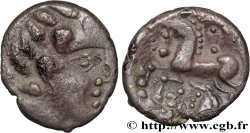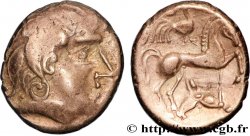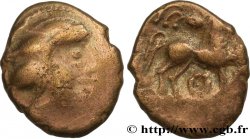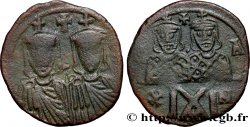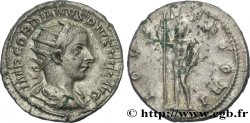275.00 €
Количество
Добавить в корзину

Тип Statère à la grue
Дата: c. 100-50 BC.
Монетный двор / Город: Limoges (87)
Металл: electrum
Диаметр: 17,5 mm
Ориентация осей монеты: 7 h.
Вес: 3,09 g.
Редкость: R2
Комментарии о состоянии
Monnaie bien centrée, avec une jolie tête au droit et une belle iconographie au revers
Ссылки в каталоге: :
Лицевая сторона
Аверс: легенда: ANÉPIGRAPHE.
Аверс: описание: Tête à droite, la chevelure en grosses mèches aquitaniques.
Обратная сторона
Реверс: легенда: ANÉPIGRAPHE.
Реверс: Описание: Cheval à droite, une grue posée sur la croupe et un trèfle entre les jambes.
Комментарий
Cette variété correspond à la classe II de la série 1076 “à la grue et au trèfle” du Nouvel Atlas.
Le motif d‘accolade partant de la bouche, devant le visage, est parfois interprété comme le signe de la parole ; on retrouve ce détail sur les statères des Bituriges, mais aussi sous forme des deux dauphins, plus ou moins stylisés, sur la plupart des monnaies d’argent du sud, dites “à la croix”.
This variety corresponds to class II of series 1076 “with the crane and the clover” of the New Atlas. The hug pattern starting from the mouth, in front of the face, is sometimes interpreted as the sign of speech; we find this detail on the staters of the Bituriges, but also in the form of the two dolphins, more or less stylized, on most of the silver coins of the south, known as “the cross”
Le motif d‘accolade partant de la bouche, devant le visage, est parfois interprété comme le signe de la parole ; on retrouve ce détail sur les statères des Bituriges, mais aussi sous forme des deux dauphins, plus ou moins stylisés, sur la plupart des monnaies d’argent du sud, dites “à la croix”.
This variety corresponds to class II of series 1076 “with the crane and the clover” of the New Atlas. The hug pattern starting from the mouth, in front of the face, is sometimes interpreted as the sign of speech; we find this detail on the staters of the Bituriges, but also in the form of the two dolphins, more or less stylized, on most of the silver coins of the south, known as “the cross”







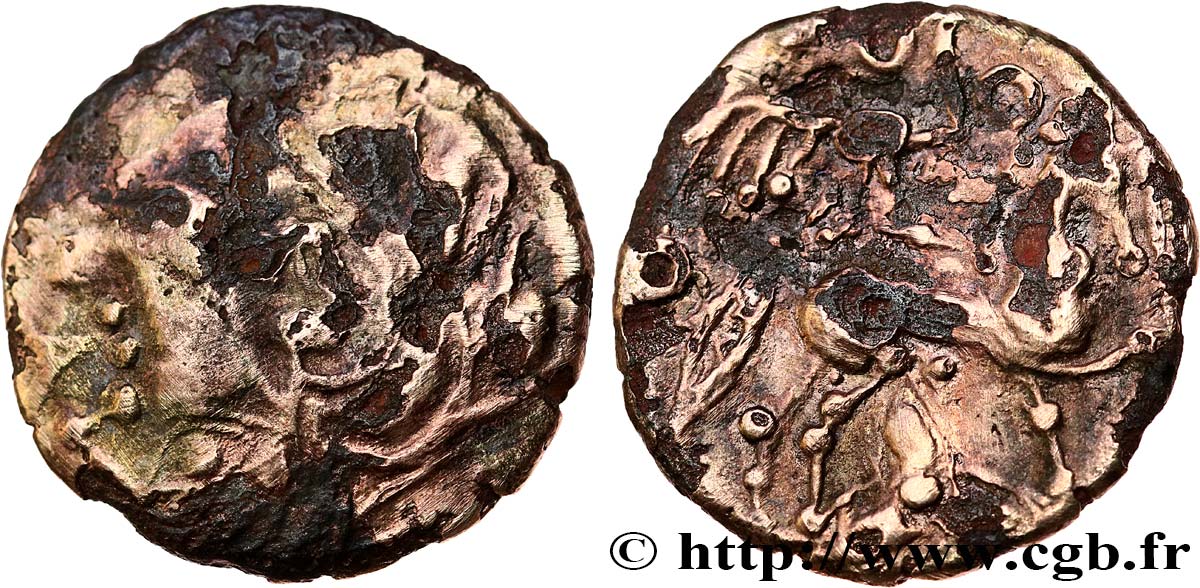
 Cообщить об ошибке
Cообщить об ошибке Распечатать страницу
Распечатать страницу Отправить мой выбор
Отправить мой выбор Задать вопрос
Задать вопрос Consign / sell
Consign / sell
 Информация
Информация